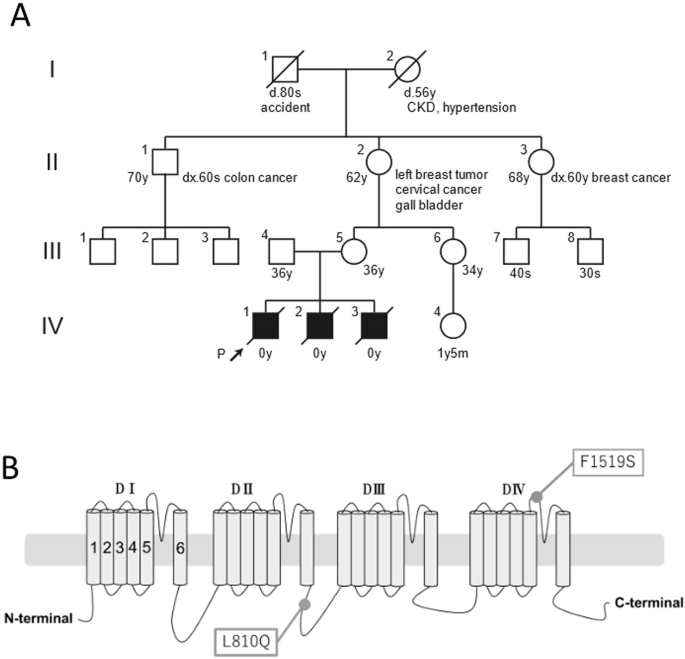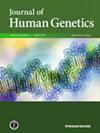Hydrops fetalis due to loss of function of hNav1.4 channel via compound heterozygous variants
IF 2.6
3区 生物学
Q2 GENETICS & HEREDITY
引用次数: 0
Abstract
Hydrops fetalis, characterized by abnormal fluid accumulation in fetuses, presents a significant risk of stillbirth and neonatal mortality. Although the etiology of nonimmune hydrops fetalis (NIHF) is multifaceted, recent studies have highlighted genetic factors as crucial determinants. This study focused on a family with three consecutive stillbirths, each with pronounced hydrops fetalis. Using whole-exome sequencing (WES), we identified compound heterozygous variants of the SCN4A gene encoding the voltage-gated sodium channel of the skeletal muscle (hNav1.4), c.2429T>A p.L810Q and c.4556T>C p.F1519S, in all three deceased infants. A functional analysis conducted using the whole-cell patch-clamp technique revealed loss-of-function defects in both variant channels, with F1519S exhibiting a complete loss of ionic current and L810Q showing a reduced channel opening. These findings support the pathogenicity of SCN4A variants in NIHF and underscore the significance of functional studies in elucidating genotype-phenotype correlations. Furthermore, our study emphasizes the diagnostic value of WES in cases of NIHF in where standard genetic testing fails to identify causative variants.


通过复合杂合变体导致 hNav1.4 通道功能缺失引起的胎儿水肿。
胎儿水肿(Hydrops fetalis)以胎儿体内异常液体积聚为特征,是死胎和新生儿死亡的重要风险因素。虽然非免疫性胎儿水肿(NIHF)的病因是多方面的,但最近的研究强调遗传因素是关键的决定因素。本研究的重点是一个连续出现三例死胎的家庭,每个死胎都伴有明显的胎儿水肿。通过全外显子组测序(WES),我们在所有三名死亡婴儿中发现了编码骨骼肌电压门控钠通道(hNav1.4)的 SCN4A 基因的复合杂合变异:c.2429T>A p.L810Q 和 c.4556T>C p.F1519S。利用全细胞膜片钳技术进行的功能分析显示,这两种变异通道均存在功能缺失缺陷,其中 F1519S 表现为离子电流完全丧失,而 L810Q 则表现为通道开放度降低。这些发现支持了 SCN4A 变异在 NIHF 中的致病性,并强调了功能研究在阐明基因型与表型相关性方面的重要性。此外,我们的研究还强调了 WES 在标准基因检测无法确定致病变异的 NIHF 病例中的诊断价值。
本文章由计算机程序翻译,如有差异,请以英文原文为准。
求助全文
约1分钟内获得全文
求助全文
来源期刊

Journal of Human Genetics
生物-遗传学
CiteScore
7.20
自引率
0.00%
发文量
101
审稿时长
4-8 weeks
期刊介绍:
The Journal of Human Genetics is an international journal publishing articles on human genetics, including medical genetics and human genome analysis. It covers all aspects of human genetics, including molecular genetics, clinical genetics, behavioral genetics, immunogenetics, pharmacogenomics, population genetics, functional genomics, epigenetics, genetic counseling and gene therapy.
Articles on the following areas are especially welcome: genetic factors of monogenic and complex disorders, genome-wide association studies, genetic epidemiology, cancer genetics, personal genomics, genotype-phenotype relationships and genome diversity.
 求助内容:
求助内容: 应助结果提醒方式:
应助结果提醒方式:


